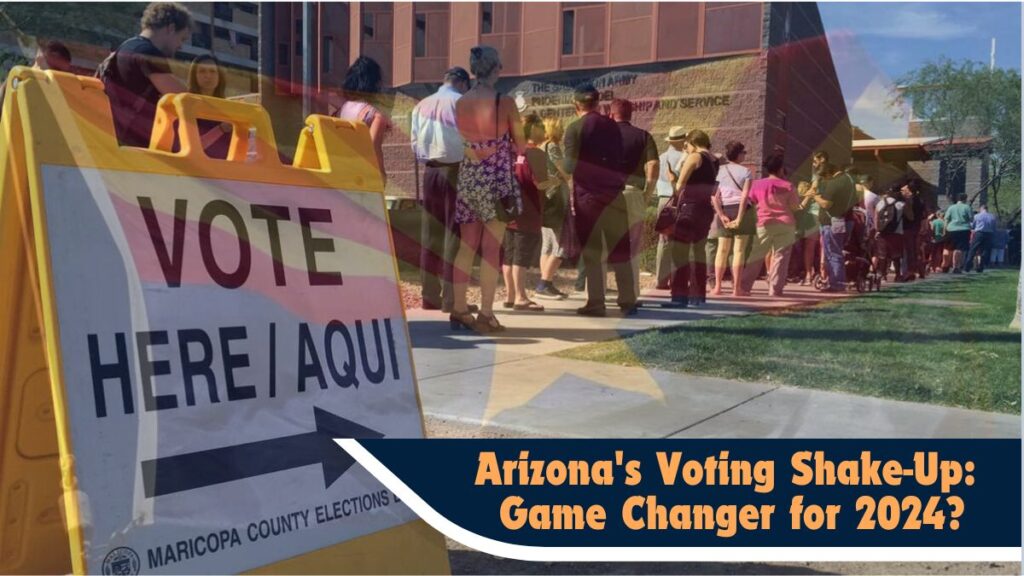Arizona Voting Laws Changes: What It Means for the 2024 Presidential Election

Arizona's Voting Shake-Up: Game Changer for 2024?
In a recent development, the United States Congress passed the SAVE Act, mandating proof of citizenship for voters in presidential elections. This move aims to standardize voter eligibility nationwide, addressing inconsistencies in state and county-level laws. However, the impact of this legislation varies from state to state, and recent rulings in Arizona highlight the complexities of its implementation.

Ninth Circuit Court Ruling on Arizona’s Voter Laws
The Ninth Circuit Court of Appeals recently upheld a ruling affecting Arizona’s federal election voting procedures. Previously, Arizona required proof of citizenship for state and local elections, but not for federal elections like the presidential vote. This discrepancy meant different standards applied to voters depending on the election type.
The court rejected a plea by Republican leaders to delay a trial judge’s ruling on lifting a ban that prevented those using the Federal Form from voting by mail or in person in federal elections. This ban has now been lifted, aligning the requirements for federal and state elections in Arizona.

Changes in Voter Registration
One significant change is that new voters registering with a state form must now provide documented proof of citizenship. This requirement ensures that only lawful citizens can vote in Arizona. Previously, federal law only required an attestation of citizenship, where voters could simply declare their status without providing documentation like a birth certificate or passport.
However, this new ruling raises questions about existing voters who registered under the old system. How will their eligibility be verified, and what measures will be taken to ensure a consistent application of the law? These questions remain unanswered, and further clarification is expected from state officials.
Implications for the 2024 Presidential Election
Arizona’s updated voting laws could significantly impact the 2024 presidential election. The state played a crucial role in the 2020 election, with President Joe Biden narrowly defeating former President Donald Trump by just 11,000 votes. Ensuring that only lawful citizens can vote might give Republicans a better chance of securing victory in this battleground state.
However, Arizona is not the only state where voting laws are a contentious issue. Other key swing states like Nevada, Michigan, Wisconsin, Iowa, Ohio, Florida, and Pennsylvania also have significant roles in determining the outcome of presidential elections. Each of these states has its own set of rules and regulations, contributing to the complexity of the national electoral landscape.
Seeking a Level-Playing Field
Arizona officials have praised the court’s ruling, emphasizing the importance of a uniform standard for voter eligibility. They argue that having consistent requirements across state and federal elections ensures fairness and integrity in the voting process. The ultimate goal is to create a level playing field where every citizen’s vote is equally valid, regardless of the election type.
But is this the end of the debate? The changes in Arizona are part of a broader national discussion about voter rights, election security, and the balance between preventing fraud and ensuring accessibility. As other states observe Arizona’s experience, they may consider similar measures to tighten voter registration requirements.
The Broader Impact on Voter Participation
While the intention behind the SAVE Act and Arizona’s new laws is to safeguard the electoral process, it is essential to consider the potential impact on voter participation. Will these stricter requirements discourage eligible voters from registering and participating in elections? How will this affect voter turnout, particularly among marginalized communities?
These are critical questions that need to be addressed as states implement new voting laws. Ensuring that all eligible citizens can easily register and vote while maintaining the integrity of the electoral process is a delicate balance. Policymakers must carefully consider these factors to avoid unintended consequences that could undermine democratic participation.
What are your thoughts on Arizona’s new voting laws and their potential impact on the 2024 presidential election? Do you believe that requiring proof of citizenship will enhance the integrity of the voting process, or could it create barriers for eligible voters? Share your opinions and experiences in the comments below. Let’s have a constructive discussion on this important issue.





1 thought on “Arizona Voting Laws Changes: What It Means for the 2024 Presidential Election”